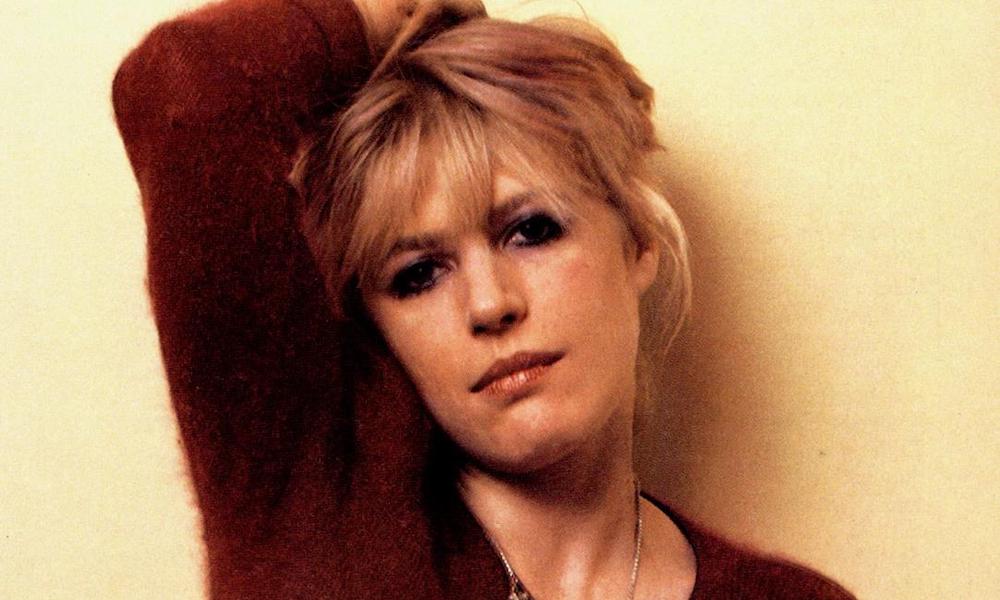To celebrate Marianne Faithfull’s birthday December 29, we’re republishing a piece from October, 1980 in which she sat down with interviewer Ann Bardach to discuss a new album, a fresh sense of what she’d been through, and the balls to tell it like it really was.
Marianne Faithfull slouches in her hotel bed, nursing a sore throat while talking on the telephone. Though semiclad in the finest of lace and silk black minislips, her modesty is shielded by a quilted cover, secured in place beneath her chest by a tray precariously laden with a teapot, saucers of honey, plates of lemon and assorted teacups. Her impeccable diction is spoken through the huskiest tones heard since Marlene Dietrich in The Blue Angel. “Listen and understand that I intend to direct, yes, direct plays,” she explains emphatically into the receiver. “Then, you see, no one could call me another rock ‘n’ roll clone.”
The new Faithfull album takes its title and a lion’s share of its thematic concerns from the infamous, banned and highly esteemed 18th-century French novel, Les Liaisons dangereuses, by Choderlos de Lochs. Structured entirely around the letters written from one character to another, Les Liaisons remains a mesmerizing, sinister chronicle of the aristocracy’s peculiar penchant for intrigue and the amoral. (After Marie Antoinette literally lost her head, a copy of the not-for-ladies novel was found in her bedchamber, deceptively bound into a nondescript white book.) Published to a scandalized, but sufficiently titillated readership in 1782, Lachs’s novel gave new meaning to the word decadence. As opposed to de Sade’s romanticized cruelty, packaged in flypaper philosophy, Lochs stripped decadence of any lurking glitter, gloss or glory down to the bare bones of sterile self-degradation. It’s easy to see how such a novel would be of …
Read More
Author: High Times / High Times


